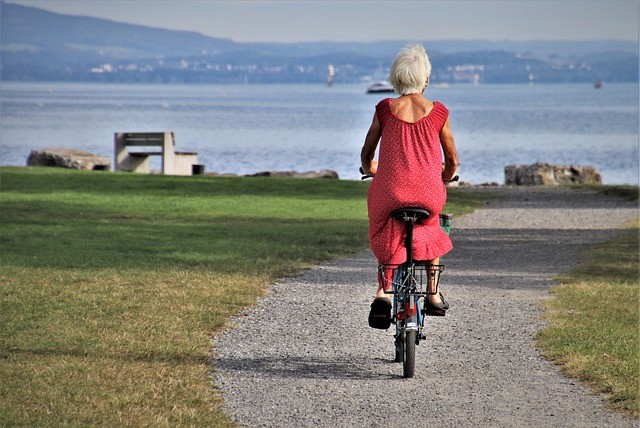How do we optimize our aging process and maximize our longevity?
Aging in the United States often gets a bad rap. There is a myriad of hazy euphemisms used to make both the observer and the observed feel better, but do they really? Golden agers, senior citizens, silvers, elderly, of a certain age or over-the hill, dried up, blue hairs, wrinkly, old coot, fogey, codger, and little old lady all bring an image to mind and not all are very edifying. Some are a little better like ageless and enduring. Several are rather complimentary; Distinguished, which suggests dignity, authority and a decent portfolio; Vintage which can be sexy, coveted and expensive like a ’67 Corvette; Perennial like an heirloom rose, gorgeous and hard to kill. Isabella Rossellini prefers ‘seasoned’ when she says, “I’ve survived much and am well rubbed with the seasonings of life.” There is also ‘experienced’; we may not know how to SNAPCHAT, but we can find our way across town without GPS. Older is better than old, and we are all older than someone!
There are the inevitable signs of aging like muscle weakness, aches and pains, diminishing vision and hearing, mood swings (irritability), insomnia, mental fogginess, memory loss, wrinkles, saggy skin, weight redistribution; often settling around the midsection. There are billions of dollars in play in elusive anti-aging campaigns. Anti-aging is actually a misnomer. You cannot reverse aging, but you do have some control over how you age. Unfortunately, many people believe they have little choice on how they age or how long they live. They place the blame on genetics. Genes only get ¼ of the credit. The rest belongs to healthy behaviors. How do we take advantage of what Betty Freidan describes: “Aging is not ‘lost youth’ but a new stage of opportunity and strength”? First and foremost is to reject the idea of aging and longevity as a hopeless cause. There is a group of researchers who meld traditional conventional healthcare with holistic approaches. They prefer to call this comprehensive care, combining a mind-body approach.
Super-Agers
A growing segment of society has emerged. Called the ‘Super-Agers”, they are the winners in the longevity lottery. They have always existed but only recently studied in earnest. Thomas Perls MD, Boston University in his New England Centenarian Study found that “average healthy life expectancy is 69, so most people are leaving 21 years of good life on the table.” He concludes that “It’s a myth that the older you get, the sicker you get. It’s more like, the older you get the healthier you’ve been.” Cognitive Super-Agers are those in their 70-80’s who have the mental capabilities of their significantly younger counterparts. The Physical Super-Agers are those who display physical prowess equal or greater than their decades younger peers. Physical super-aging is measured by aerobic capacity, which is the amount of oxygen one takes in and distributes to your tissues within one minute. We lose 10% of this capacity each decade over the age of 30.
How do we join this highly desirable longevity group?
Diet
Eat just enough to maintain your optimal weight. Eat breakfast like a king, lunch like a prince and dinner like a pauper. Avoid processed foods, refined sugars, saturated fats and sodium.
Faith
Researchers are unsure why people of faith live longer, but they do. The credit may go to socialization, volunteerism, prayer and attitudes of gratitude.

Friendship, Socialization, Avoiding Loneliness
Friends are wonderful if the relationship is healthy, mutually supportive and non-toxic. Loneliness can be prevented by widening your social circle beyond your spouse or close family. Social isolation (difficult always but nearly impossible to avoid this past year) plays a significant role in longevity. The more time you spend in social activity, the lower your mortality risk. Engaging in meaningful or fulfilling conversations via Facebook or Zoom is better than nothing at all.
Attitude
Is your glass ½ full or ½ empty? Tap the power of positive thinking. Optimism is linked to lower cholesterol and blood pressure. Centenarians at the Albert Einstein College of Medicine have been studied for their optimistic personality, perhaps reflected by Einstein himself in this quote, “I have reached the age when if someone tells me to wear socks, I don’t have to.”
Brain Stimulation
Dr. Bradford Dickerson, Massachusetts General Hospital neurologist suggests that embracing new mental challenges may be key to preserving brain tissue and function. Go ahead and do crosswords, Sudoku and word searches. Revel in your ability to solve Wheel of Fortune or kill it at Jeopardy.

Exercise
Ageing and longevity experts agree that moving it prevents losing it. Whether it is 30 minutes/day 5 times a week or any variation of the current recommendations, the message remains the same. Ann McGown started running at 49 after her husband died. She kept going within months of a mastectomy to race in the 1991 National Senior Games, a competition for people over 50. She’s run the 100-, 200- and 400-yard dashes, competed in long jump, hammer throw, discus and javelin. At 92, she is one of 8 athletes who have competed in each of the National Senior Games since their inception in 1987. Read my post from last month about Tai Chi for a great exercise option.
Purpose
Retirement does not spell end-of-usefulness. Purpose can be redefined into many avenues besides work or career. Activism and volunteerism can take many forms from children, neighborhood or equality advocacy to politics, special interests, literacy, church or community opportunities. This also feeds the human need for mental, social and physical engagement. People want to feel relevant.
Sleep
Sleeping less than 5 hours per night leads to increases in blood pressure, heart disease, diabetes, obesity and cancer. Adults need around 8 hours per night. At the beginning of our lives, our parents put us down for a nap to keep us from being cranky. There is nothing wrong with the same philosophy now.
Do not let the number hold you or anyone you love back. Ruth Bader Ginsburg, ‘The Notorious RBG’ (she loved this moniker) started working out with a personal trainer at 68. She recently died at age 87, still active on the Supreme Court. Nelson Mandela was released from prison at 72 and then became the first black president of South Africa. Colonel Sanders founded Kentucky Fried Chicken after retiring at 65. Sophia Loren scoffs at the idea that there is no fountain of youth. She says, “There is a fountain of youth; it is in your mind, your talents, the creativity you bring to your life and the lives of the people you love. When you learn to tap this source, you will truly have defeated age.”
For fun you can try this Living to 100 Calculator. I did and apparently will live to 97.
Note: You have to provide an email to receive the result
Considering a later career option to work as an Interim Healthcare Leader provides many of the benefits listed above. Several NHS Solutions Interim Nurse Leaders have come back into the workforce after an initial retirement period, this time on terms defined by them. This means that for many, they are able to work a 3-6 month assignment and then take some time off before accepting another position. A unique feature in resumes of many Interim Healthcare Leaders is a long list of short term jobs, with gaps. This is not considered a negative by NHS Solutions or our hospital clients. Rather, this illustrates success to us as we can see a seasoned interim leader. Contact us for more information on this amazing option for highly experienced and qualified healthcare leaders.
